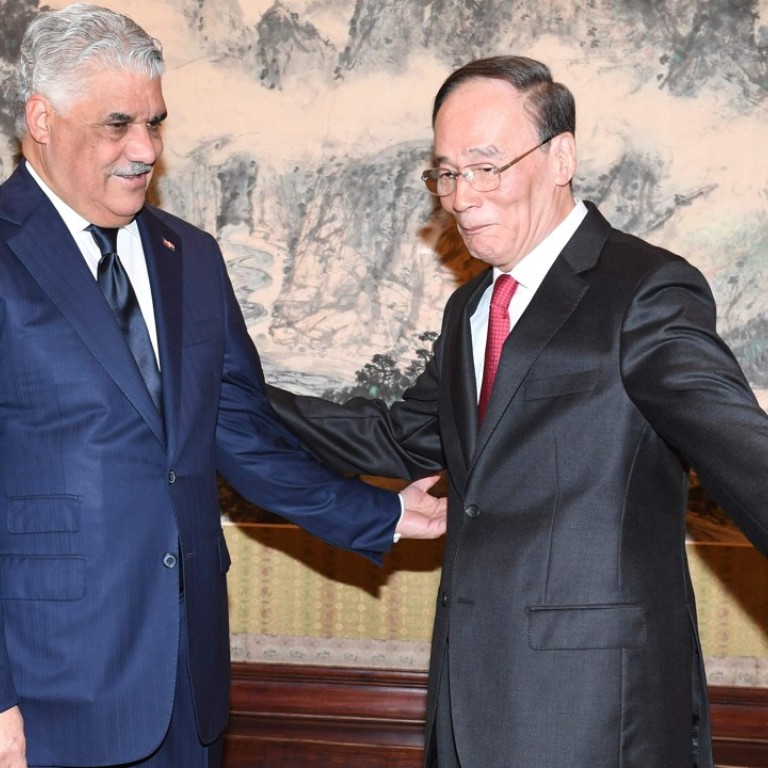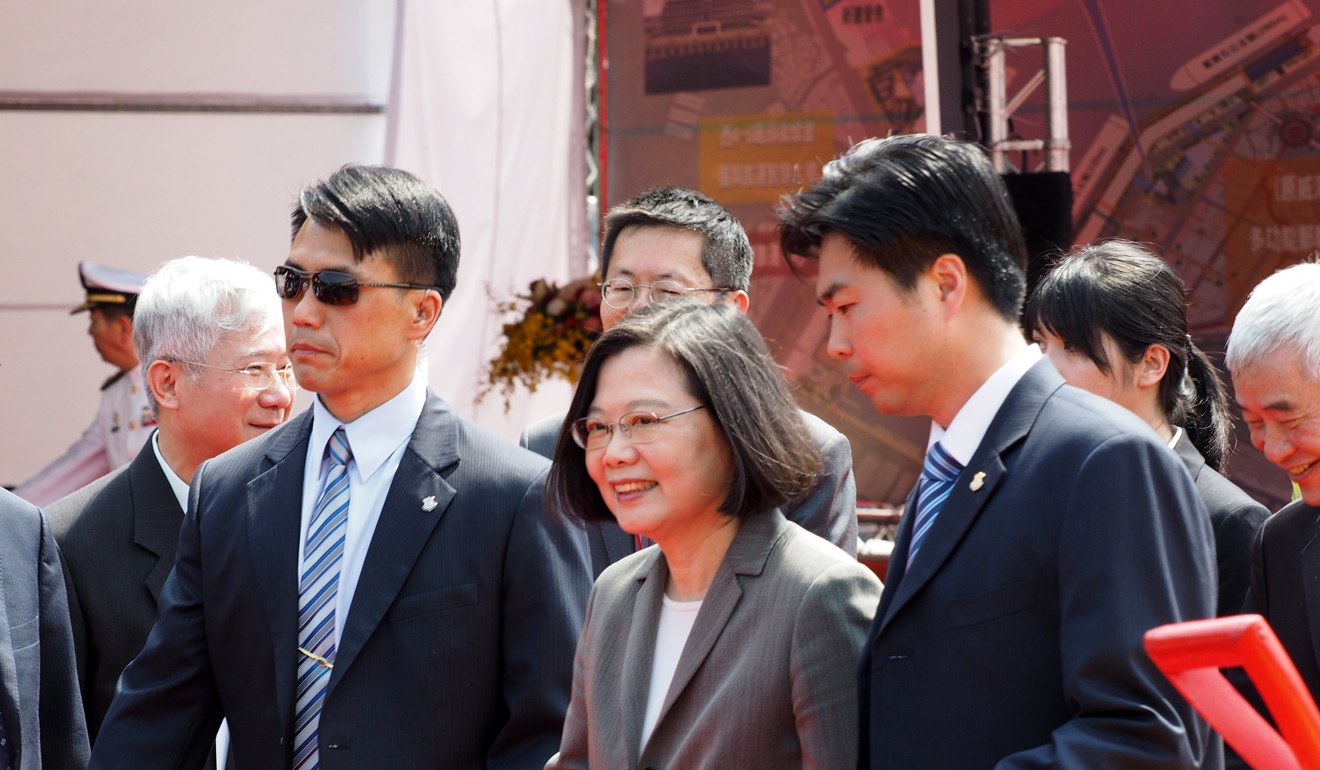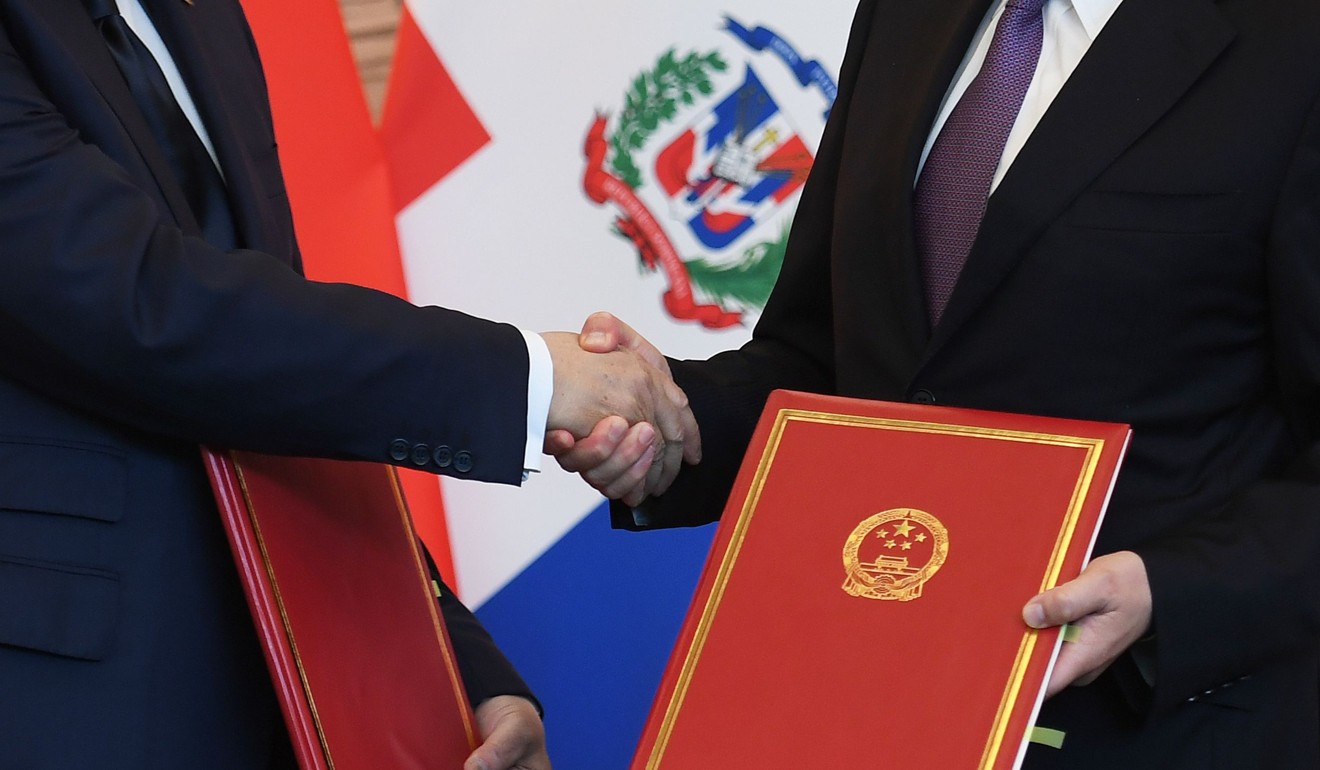
Why China hopes Taiwan’s loss of support from Dominican Republic will give the US pause
Caribbean nation’s switch seen as sign that Beijing will use diplomatic pressure to tighten squeeze on ‘breakaway’ island if Washington gets too close
The decision was the latest diplomatic setback for Taiwan, which is only formally recognised by a handful of countries, and follows the decision last year by Panama to switch recognition from Taipei to Beijing.
The mainland has stepped up its diplomatic and economic pressure on Taiwan since President Tsai Ing-wen’s government took office in 2016.
Beijing considers the island, which broke away after the defeated Nationalist forces fled there at the end of the civil war in 1949, as an inalienable part of China and has never renounced the use of force to regain control.
Chinese President Xi Jinping has also expressed his determination to push for reunification, which is seen as part of his plan for national rejuvenation.
But Tsai’s independence-leaning Democratic Progressive Party has refused to endorse the “one China” principle.
Wang Kung-yi, professor of political science at Chinese Culture University in Taipei, said in addition to squeezing Taiwan, the diplomatic offensive was also a form of political wrestling between Washington and Beijing in Latin America – which America sees as its backyard.
“Beijing has become more and more sophisticated in playing the money diplomacy game,” Wang said.
Has Beijing just put the finishing touches to its Taiwan battle plan?
He added that besides offering large amounts of money to the Dominican Republic, China has also provided huge technical and human resources to helping the Caribbean nation improve its infrastructural development.
“This way, Beijing has not only won the support of the government, but also those from the public, which would mean a big deal in terms of wrestling with Washington,” he said.
“This is why the Trump administration is willing to strengthen ties with Taiwan and neighbouring nations to counter Beijing,” Wang said.

Yang Liqian, a Beijing-based expert on Taiwan, said Beijing’s latest squeeze would also serve as a warning to the US not to use Taiwan as leverage to counter China.
“The Taiwan issue is part of the China-US rivalry, and America has intensified its efforts to use Taiwan as leverage against China,” Yang said.
“While the US only sees Taiwan as a chess piece, China sees Taiwan as part of its core interests that cannot be compromised,” he added. “Taiwan should not have any illusions about that.”
In March US President Donald Trump signed the Taiwan Travel Act, which calls for higher-level visits between US and Taiwanese officials, despite protests from Beijing.
The United States has also been considering naval port calls to Taiwan, something that has not happened since the 1970s, when Washington began to re-engage with mainland China.
In recent months, Beijing has flexed its military muscle in the region by sending strategic bombers to circumnavigate Taiwan, and held a live-fire drill in the Taiwan Strait last month.
After signing the joint communique on establishing diplomatic ties with Chinese Foreign Minister Wang Yi in Beijing on Tuesday morning, his Dominican counterpart, Miguel Vargas, was received by Chinese Vice-President Wang Qishan at Zhongnanhai compound.

The state news agency Xinhua reported that Wang told Vargas that the Dominican government’s decision “conforms with the trend of the times” and was in the long-term interests of the two countries and their people.
Tsai’s office responded that Beijing’s actions had “unilaterally undermined the peaceful status quo across the strait and were not what a responsible member of the international community should be doing”. Her foreign minister, Joseph Wu, added that Taiwan felt “deeply angry”.
In Taipei, Sonia Urbom, the spokeswoman for the American Institute in Taiwan, the de facto US embassy, said: “These efforts to alter the status quo are unhelpful and do not contribute to regional stability.”
Xu Shicheng, vice-president of the Chinese Association for Latin American Studies, said losing the support of the Dominican Republic would deal a huge blow to Tsai’s government.
“Latin America is an important target for Taiwan’s diplomacy, and the Dominican Republic is the second fastest growing economy in the region after Panama,” Xu said.
“Negotiations to switch recognition to China have been ongoing for a long time. But the decision now is a stern warning against Taiwanese independence.”
The island is recognised as a sovereign nation by only 19 mainly small, developing countries – 10 of which are in Latin America and the Caribbean.
Flavio Dario Espinal, the legal consultant to the Dominican presidential office, told a news conference on Monday that the change in foreign policy was based on the nation’s “needs, potential and future prospects”. He added: “History and socioeconomic reality now forces us to change course.”
The Dominican Republic had received millions of dollars in donations for development programmes from Taiwan, but Taipei immediately suspended its projects after the announcement.
Mainland China’s significance has grown in recent years for the Dominican government as bilateral trade with China reached US$2 billion a year, making it the second-largest trading partner for China among the Caribbean and Central American nations.
Additional reporting by Lawrence Chung

